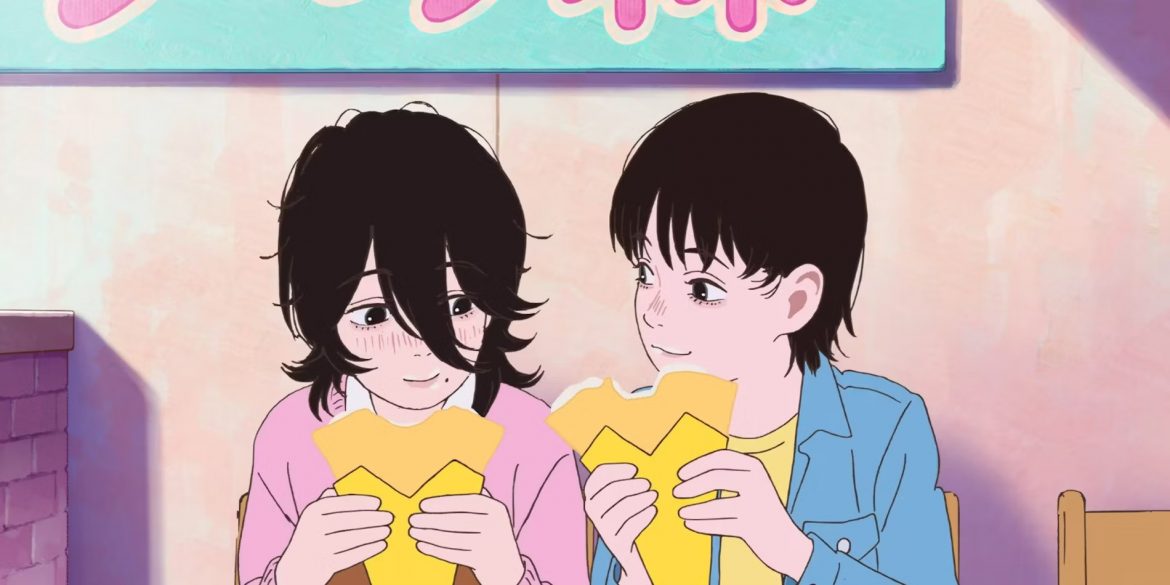I’ve always liked making stuff – drawing, writing, what have you – even though I’m not exactly the best at it. There have been so many times in my life where I wanted to share that process of making things with someone else, as I think sharing one’s art is one of the most intimate things you can do with a person you care about. Without the act of collaboration, the process of making art is a lonely one.
For Ayumu Fujino (Yuumi Kawai; Plan 75, It’s A Summer Film!) the creation of art – in this case, four panel manga called yonkoma – is only a means to gain personal validation. She likes being the best at what she does, and she loves it when her classmates praise her art or laugh at her jokes. But one day, the teacher in charge of the school newspaper delegates part of the newspaper’s comic section to Kyomoto (Mizuki Yoshida; Dragon Zakura Season 2), an agoraphobic truant who loves to draw. Kyomoto’s compositions, in contrast to her classmate Fujino’s wordy gag-based work, are wordless scenes and landscapes that evoke moods. Eventually Fujino and Kyomoto’s paths intersect, and the two begin a rare and fruitful artistic relationship.
Look Back may clock in at under an hour, but the anime adaptation of Tatsuki Fujimoto’s one-shot manga packs so much in its short running time: friendship, grief, loss, the joy of collaboration, and ultimately, our relationship to art (that is, our answers to the question, why do we do art in the first place?). It also illustrates how in our darkest moments, we turn to art in order to express difficult emotions. Look Back transforms in its second half into something a little more abstract – as much a mood piece to the first half’s conventional storytelling as Kyomoto’s work is compared to Fujino’s. But that’s not to say the first half is in any way boring or cliched – Fujino’s determination to be the best at what she does, to refine her craft to the highest level – is a road often traveled alone, and at the cost of many relationships and friendships. Like I said when I related my experiences earlier, that journey is made a little easier when there’s someone you can share that joy with you.
There’s a saying that goes “make art for yourself. Not the audience.” There’s a bit of truth to that, of course, but what Fujino figures out during her journey is an evolution of her earlier wish for validation: to make art for someone else, to be what she was for her dearest friend: someone to look up to, someone to share the journey of art with, hand in hand. Though the melodrama in the film’s latter half probably made the majority of the audience cry during the screening I attended, I found myself far more affected by the loneliness of an artistic path, and Fujino’s decision at the end. Look Back may be shorter than many of the films I’ve watched this year, but by far it’s one of my favorites.


